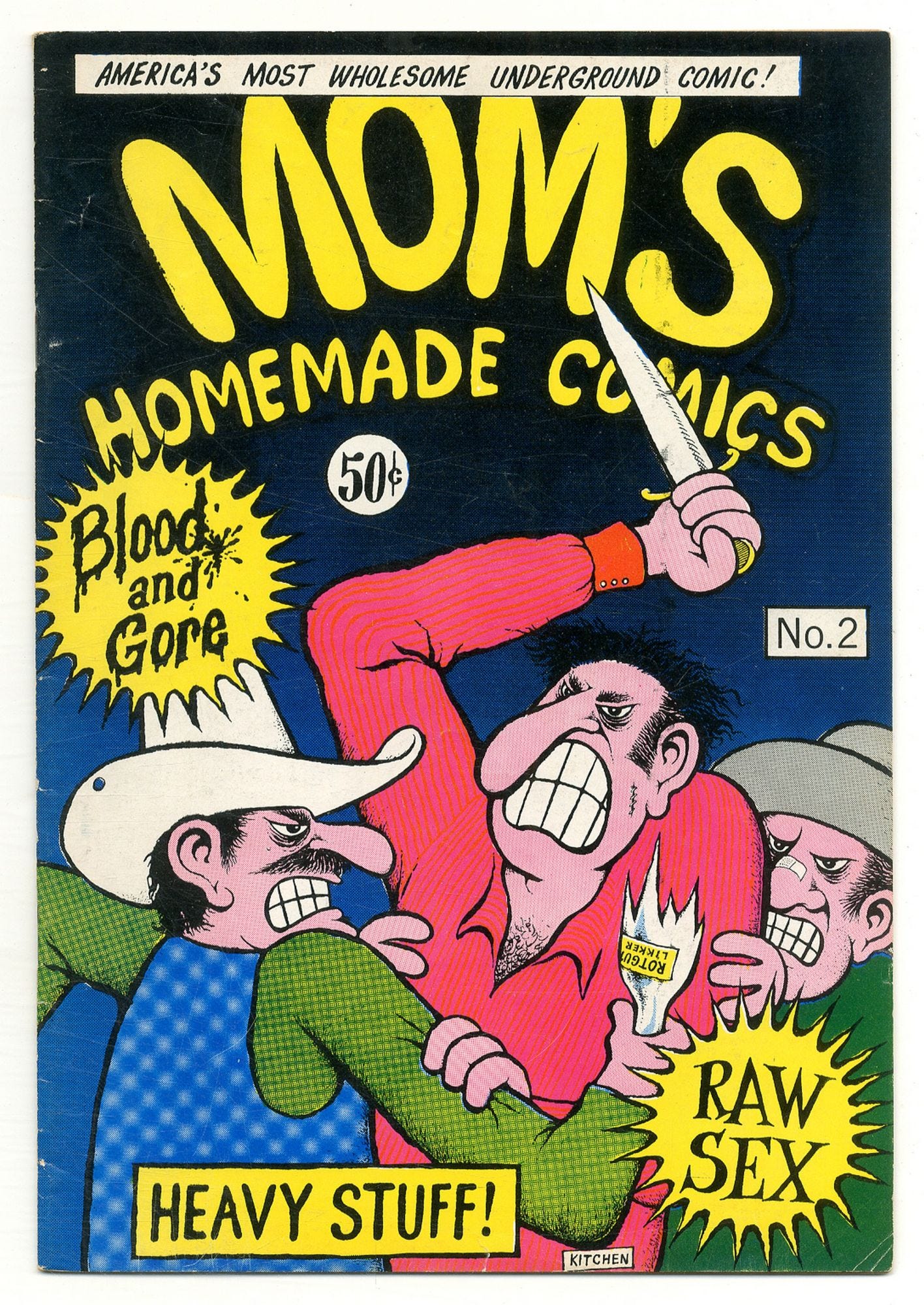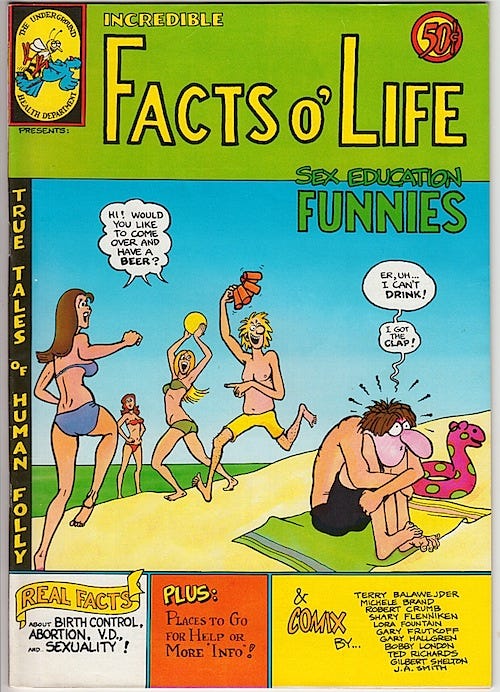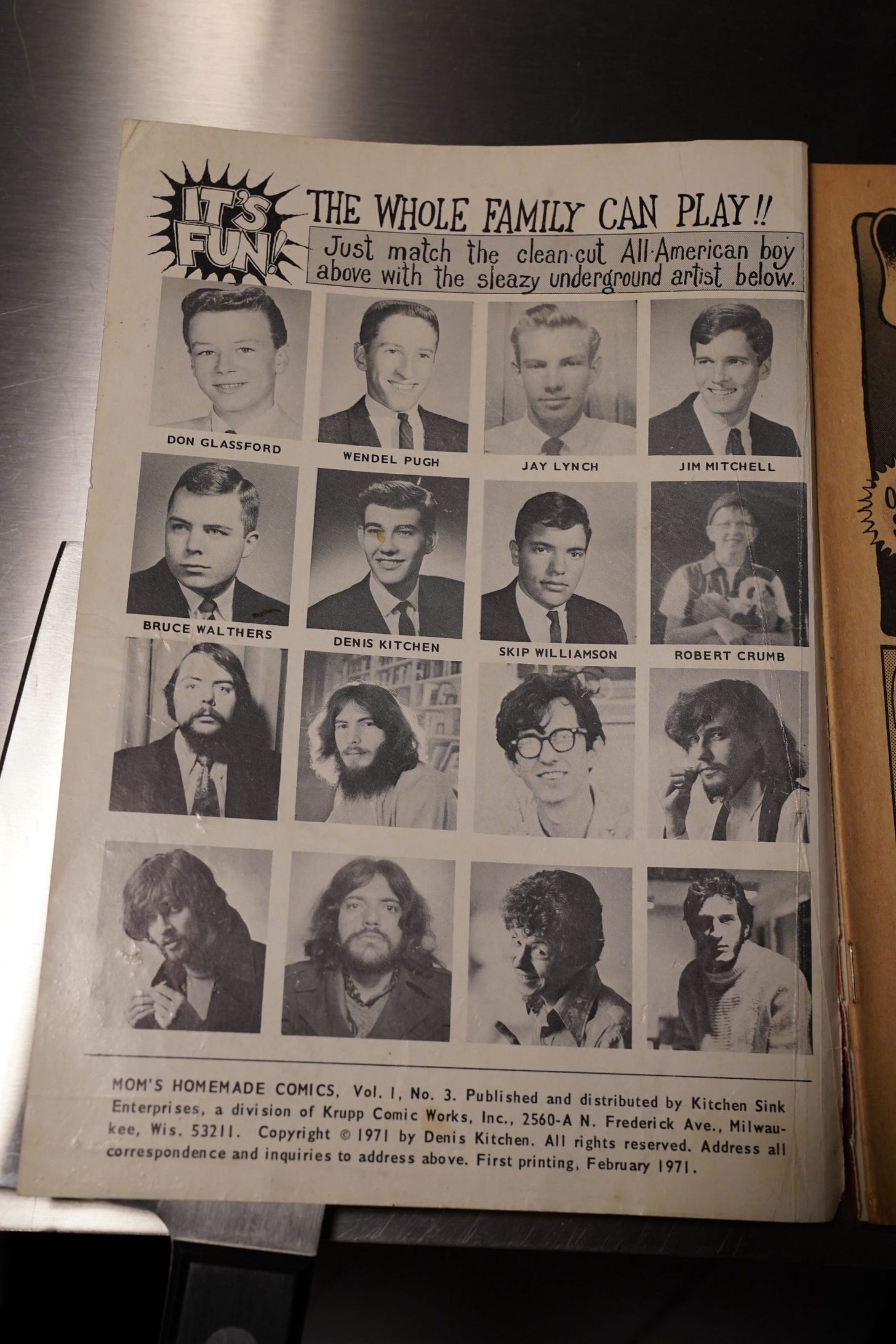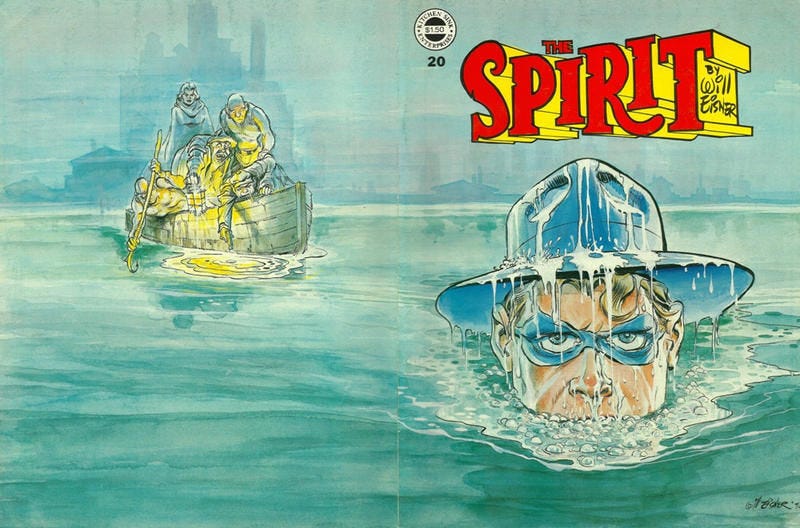An Interview with Denis Kitchen
It was a culturally unique period and an exhilarating time, with countless opportunities in the alternative culture to be creative without any outside interference or restrictions.
We’ve got an interview with another comics groundbreaker at Autobiographix today! Here to talk about his work is Denis Kitchen, publisher of many comix (and comics) through his legendary Kitchen Sink Press. KSP was one of the first four underground comix publishers in the heyday of the counterculture, and Kitchen featured work from Howard Cruse, Trina Robbins, and more creators of the era. As the press continued, Kitchen also published collections like Milton Caniff’s Male Call and Will Eisner’s work.
We wrote a bit about Denis Kitchen’s connection in an earlier post about comics in Wisconsin (where KSP was based), but here we get a chance to dive in further.
Describe your comics journey—how did you get into making comics?
From reading age on I was addicted to daily newspaper strips and comic books, voraciously collecting the latter. When I showed an early aptitude for drawing, grade school teachers generally encouraged it and so, starting in 2nd grade I was passing rather crude comics and illustrated stories around class. I steadily got better and by high school I had a regular self-published zine called Klepto, with a circulation around fifty that I was able to sell to classmates, followed by a weekly strip and a humor magazine called Snide in college (UWM). After graduation and a very brief army stint I merged seamlessly into the turbulent late ‘60s, the hippie phenomenon, and underground comix.
How did you develop your voice and unique comics style?
I never consciously copied another cartoonist, though I’ve been accused of being the bastard child of Basil Wolverton and Ernie Bushmiller. Art instructors in high school and college tended to hate comics in my formative years, so I had no formal training in art. Being self-taught in a vacuum other than comics probably reinforced eccentric styling and out of the box thinking. Plus the underground comix movement celebrated the idiosyncratic do-it-all-yourself approach, as opposed to the “assembly line” of major comics publishers. It was a culturally unique period and an exhilarating time, with countless opportunities in the alternative culture to be creative without any outside interference or restrictions.
What were some of the joys and challenges of running the iconic and innovative Kitchen Sink Press? And, how is running your current press, Denis Kitchen Publishing?
A primary joy was in being self-employed, working with dozens of inspired young fellow cartoonists, and publishing crazy comix that sold tens of thousands of copies each in head shops across North America and parts of Europe. There were four UG comix publishers: three in the San Francisco Bay Area, and then Kitchen Sink, the outlier in Milwaukee. I took great perverse pride in staying in Wisconsin when so many others migrated toward Haight-Ashbury in Califiornia’s Hippie Mecca. The biggest challenge was handling a growing business when I had no background whatever in business, and learning by the seat of the pants. But somehow Kitchen Sink lasted thirty years.
The current press is really just a sideline for fun projects and for “packaging” books periodically for real publishers. I’m semi-retired now and just looking for fun projects, whether writing, drawing, curating, or simply spending time with numerous collections.
Are you working on something now?
I was supposed to be doing a lavish book on Boris Artzybasheff for Beehive Books with my youngest daughter, cartoonist Violet Kitchen, similar to our earlier Harrison Cady book (Madness in Crowds) for Beehive. But I just jumped out of that one, so it’s a solo project for Violet now. I continue to do spontaneous surreal “chipboard” drawings, the kind that were collected a year or so back by Tinto Press (Creatures From the Subconscious) and soon will have enough for a sequel. I’m also writing a book about the Nancy cult, looking to assemble books based on strange early 20th century topical postcards I collect; writing Introductions for other books; growing a weird outdoor art project I call the Valley of the Dolls; I’ve been doing more commissioned drawings; and I’m involved in half a dozen documentary films. I've never been busier since becoming semi-retired!












Thank you, Thank you, Thank you, for interviewing the great Denis Kitchen! Without his underground comix publishing the world would have missed out on so many great artists: Crumb, Aline Kominsky-Crumb, Spain Rodriguez, Rand Holmes, Richard Corben, etc.